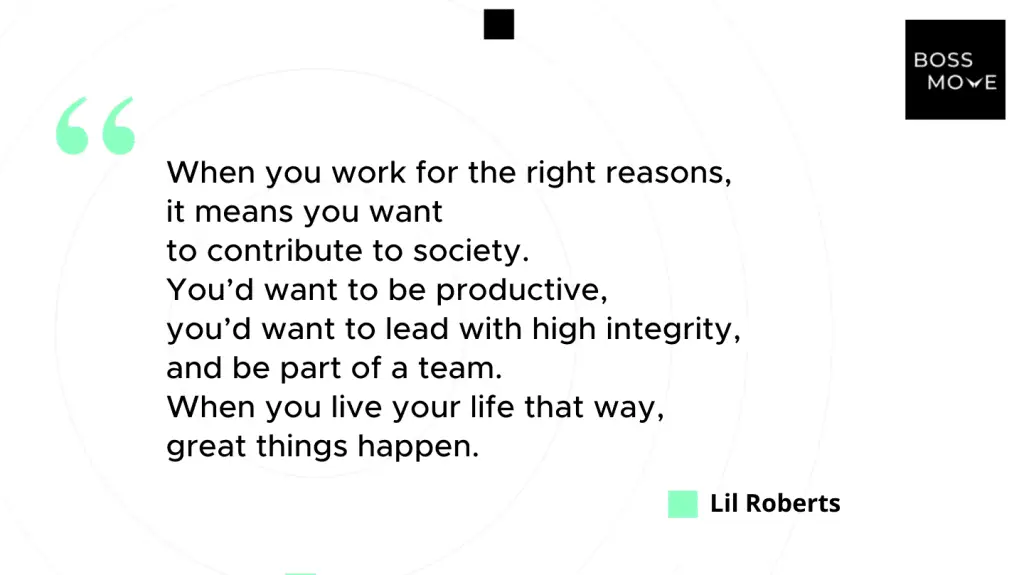These are the women in Miami tech you need to know | South Florida Business Journal

The Miami tech movement wouldn’t be what it is without the women founders, executives, nonprofit leaders, and venture capitalists who have spent years championing the region’s innovation community. An article by Ashley Portero, Senior Reporter, South Florida Business Journal. Read more here
Low-Burn | Scaling Your Startup S2 E8 with Neyborly’s Ben Seidl & xendoo’s Lil Roberts | E1224

When it comes to financial health as your scaling your startup there are six steps to healthy financials for scaling your startup. Watch for insightful tips for your small business by our CEO and Founder Lil Roberts, at This Week in Startups – Scaling your Startup. E1224 of Low Burn.
Online Bookkeeping Provider xendoo Now Helping Small Businesses in 46 States, 12 Countries

One of Broward County’s biggest startup success stories continues to grow at a rapid pace. Fort Lauderdale-based xendoo has developed a SaaS bookkeeping platform targeted at small businesses. The startup reported a two-year revenue growth of 777% from 2018 through 2019.
Profile of a Founder: Lil Roberts of xendoo

We believe business owners should have time to do what they love, build their business – not do bookkeeping.
Importance of LIVE events & What’s the Future of Ecommerce | Lil Roberts | Ep. 173

The new buying habits are post-pandemic! What to expect? xendoo CEO and Founder Lil Roberts is back to share with us the new buying habits post-pandemic and how eCommerce fits into retail’s post-pandemic future. “We believe business owners should have time to do what they love, build their business – not do bookkeeping.”
Free Small Business Expense Tracking Spreadsheet
Small business expense tracking can be tedious, but it’s one that all companies–from “mom and pop” shops to international enterprises–must do. Fortunately, business expense tracking apps make the job easier. An app is ideal if you have a business with many employees, sales, and tax considerations. For some small businesses, however, paying a subscription fee for an expense tracker may not be feasible in the beginning. In this case, they can use a free business expense tracker or template. While expense tracking will remain manual, it will keep their finances organized in one place. We’re sharing a free business expense tracking spreadsheet that you can use. You can jump to the spreadsheet here and scroll further to learn how small businesses can keep track of expenses for free or at little cost. Why do you need to track small business expenses? What are common business expenses? What is the best way to track expenses for small businesses? Small business expense tracking spreadsheet Why do you need to track small business expenses? As you may know, you’re required to file taxes each year. Come tax time, no one wants to sift through old receipts to account for each expense. Once you start expense tracking regularly, you can eliminate such hassles. Moreover, up-to-date records ensure that you file tax returns accurately. Therefore, should the IRS audit your company, you won’t have anything to worry about. Besides saving you time, you’ll also want to track expenses to take advantage of tax deductions and better financial health. Tax Deductions Everyone has to deal with taxes every year–companies and individuals. You may be eligible for tax deductions for certain expenses or activities. If you qualify for a deduction, you can lower the tax amount you owe and use the savings to grow the business. While it may surprise you, many small business expenses qualify for tax deductions. However, only a small proportion of small business owners benefit from them. This is primarily due to inadequate expense tracking practices and not knowing how much you can save. With reliable accounting software, you’ll have expense reports. These will give you a complete picture of your spending and tax deductions. If you’re unsure what counts as a deduction, you can review our list of over 20 tax deductions for small businesses. Financial health Data from the Bureau of Labor Statistics (BLS) shows that 20% of small businesses fail within the first year. This figure rises to 50% by the fifth year. But there’s a silver lining. Most of these businesses do not fail because there’s no market. Surprisingly, some companies make a lot of money and still fail. Some of the reasons for this include: Financial mismanagement Cash flow issues Unsustainable growth Poor planning As you can see, all those factors are related to finances. By ironing up your expense tracking processes, you can significantly increase the chances of success for your business. You’ll be able to quickly spot unnecessary, unusual, and fraudulent activity that may bring your business down. This way, you can limit business expenses to necessary expenses and prevent costs from going overboard. In addition, you can learn how to read and interpret financial statements. What are common business expenses? Businesses in varying industries have different expense profiles. Even still, there are expenses that almost all businesses have. In the expense tracking spreadsheet, you’ll find areas to record each of these expenses, including: Advertising and marketing – Costs associated with hiring a marketing agency or a consultant. Auto expenses – If you use your car for business, you can expense repairs and mileage. Bank charges – Fees and costs for a business bank account and credit cards. Commissions – They will be recorded here if you pay out sales commissions. Contract labor – This is for businesses that hire freelancers or contract employees. Interest – If you have a business loan, its interest is considered an expense. Legal & professional – Consult with lawyers, accountants, and other professionals. Merchant fees – These are costs that merchants like Shopify and Amazon charge. Payroll, payroll taxes, and processing – Expenses related to paying employees and processing those payments. Recruiting & HR – Costs associated with finding and hiring employees. Training & Education – Expenses related to furthering your or your employees’ business education. Software and tools – Many tools you use for your company are expenses (and tax-deductible). Rent or lease – If you have a physical store or office, you can add it as an expense. Utilities – Many utilities, including the Internet, are business expenses. These are just a few examples. You’ll find more inside the small business expense tracking spreadsheet. What is the best way to track expenses for small businesses? At this stage, you know why it’s important to track business expenses, but how do you do it? You have two options: business expense tracking spreadsheets or apps. 1. Business expense tracking apps The best options for business expense tracking are expense tracker apps. These solutions sync to your bank accounts and business credit cards and categorize your expenses. This eliminates most of the manual work and automates inputting the costs yourself in a spreadsheet. As a result, the only expenses you usually add manually are those you pay for in cash. Such solutions generate expense reports in addition to maintaining expense records. These reports help you understand your spending habits and how they impact cash flow and financial health. You don’t have to set time aside for this. You can review your expenses using a mobile app while on the go. Overall, they reduce the amount of time you spend on expense records. Some business expense tracking apps include: Mint Quickbooks (integrates with xendoo) Xero (integrates with xendoo) Zoho Expense Expensify To learn more about each app and if it’s a good fit for your company, you can view our guide to expense tracking apps here. 2. Business expense tracking spreadsheets While business expense tracker apps may be ideal, they’re sometimes
Lil Roberts joins Kison Patel of Boss Move Podcast to Discuss The Elements of Success

Success is not about luck and chance. It’s about visionary leaders who intentionally pursue the critical elements every business needs to be successful. Join Kison Patel from Boss Move Podcast and his guest Lil Roberts, Founder, and CEO in the episode Critical Elements of Success as they talk about the secret ingredients for success and how to get them.
Lil Roberts, CEO Joins The y.FTL Panel at Endeavor Miami

Endeavor Miami hosted their y.FTL panel, the second panel in their y.FLORIDA series. Lil Roberts, xendoo’s CEO was one of the speakers. As Florida’s entrepreneurial ecosystem continues to develop they will continue to shed light on the strength of Florida’s entrepreneurs. Honored to be part of an amazing night with incredible people!
These are the women in Miami tech you need to know | South Florida Business Journal

The Miami tech movement wouldn’t be what it is without the women founders, executives, nonprofit leaders, and venture capitalists who have spent years championing the region’s innovation community. An article by Ashley Portero, Senior Reporter, South Florida Business Journal. Read more here
Low-Burn | Scaling Your Startup S2 E8 with Neyborly’s Ben Seidl & xendoo’s Lil Roberts | E1224

When it comes to financial health as your scaling your startup there are six steps to healthy financials for scaling your startup. Watch for insightful tips for your small business by our CEO and Founder Lil Roberts, at This Week in Startups – Scaling your Startup. E1224 of Low Burn.
